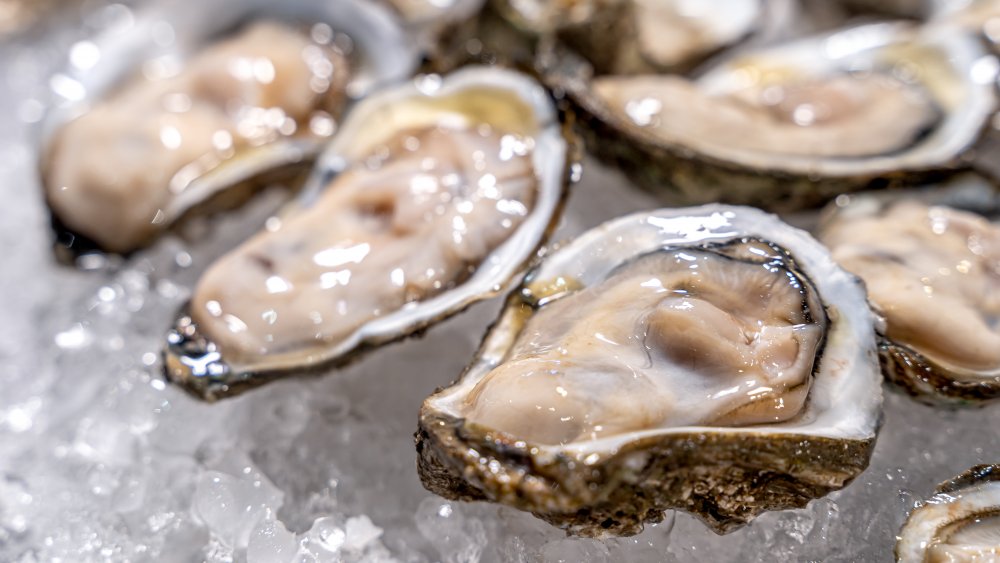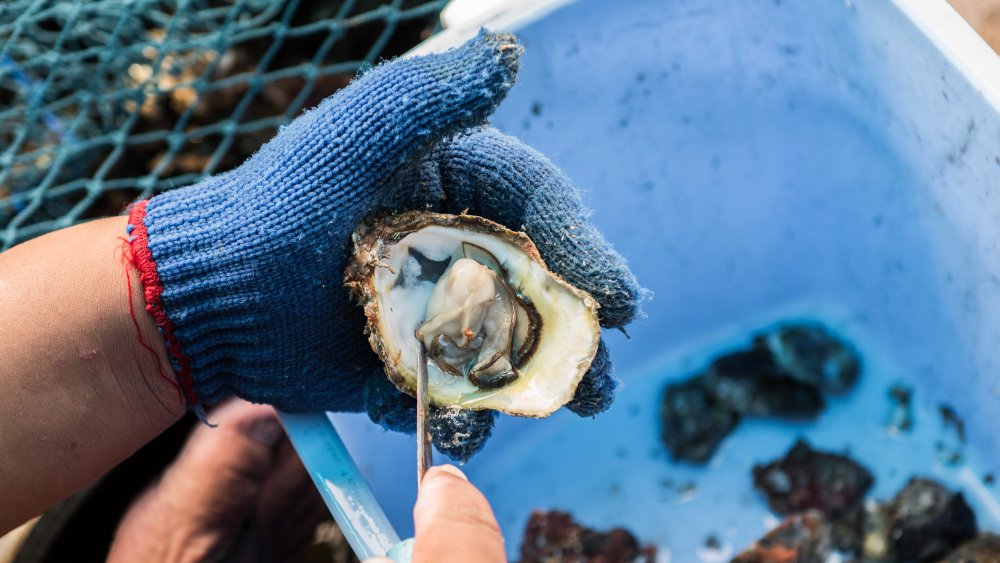The Biggest Reason To Avoid Oysters, According To A Food Safety Expert
If there's one thing everybody knows about oysters, besides their supposed powers to spice things up in the bedroom, it's that you should never eat them in any month that doesn't contain an "r." (These would be the months of May, June, July, and August, in case you don't feel like running through the list.) This piece of folk wisdom is even older than you might think – while LiveScience says it dates back to a cookbook published in 1599, the idea that summertime isn't the best time for these bivalves has been around since ancient times. In fact, the Florida Museum of Natural History presents archaeological evidence that Native Americans were avoiding oyster harvesting during the summer months some 4,000 years ago.
So, ok, why no summer oysters? Well, not only were oysters more likely to spoil during warmer months in pre-refrigerator days, but wild-caught oysters are more likely to contain certain types of disease-causing toxins during the summer months. Commercially farmed ones, however, are likely to be safe year-round. Even so, food safety expert Toby Amidor says that the immune-compromised might just want to skip eating raw oysters altogether.
Why raw oysters can be dangerous
When we spoke to Amidor about oysters, she advised caution when it comes to eating them on the half-shell. According to her, "One of the biggest reasons to avoid raw oysters [is] the increased chance of getting a foodborne illness." She noted that they can contain bacteria that are linked to Vibrio gastroenteritis, an illness with symptoms including abdominal cramps, nausea, vomiting, watery diarrhea, and/or fever (via the Virginia Department of Health). Amidor warns that older adults, young children (aged 6 and under), pregnant women, and those with chronic conditions such as diabetes are more likely to suffer complications from vibriosis and warns that it can even be fatal in severe cases.
So should oysters be avoided altogether? Not necessarily. Amidor offers this suggestion: "To minimize your risk, purchase raw oysters from a reputable source and if you are at high risk for illness, then it's recommended that you eat cooked oysters only."
Oh, and if the possible risk to your health and safety isn't enough to make you avoid uncooked oysters, here's a little added disincentive: there's a possibility those freshly-shucked oysters aren't quite dead by the time you're eating them. Ewww, aphrodisiac or not, that's just gross!

